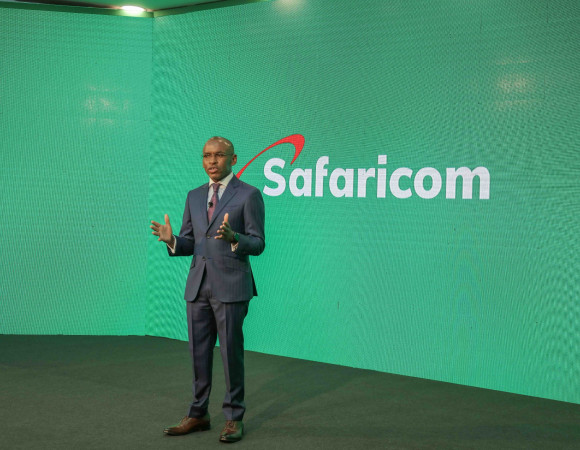Safaricom must embrace rivals for its own good

Safaricom is pushing the government to block US satellite Internet service provider Starlink from directly entering the local market. They instead want officials to allow in Starlink only through a local licence. Of course, the usual reasoning, some would say excuses, in such cases, are then offered.
First, Safaricom has been a dominant player in the Kenyan communications industry. It’s now a well-established economic truism that market dominance breeds complacency, which engenders corporate arrogance. The relationship between a dominant player and its customers inevitably degenerates into an abusive one. The almost ecstatic response by many Kenyans over Safaricom’s near panic over Starlink should give the local telco cause for a major pause. The company needs a serious soul-searching.
Competition is good for Safaricom. For the first time, it has been jerked out of its comfort zone, where a certain smugness seems to have afflicted it. And, like a wounded giant, it has started responding. The doubling of internet speeds is the first shot across the bows.
Safaricom is a baby of disruption. It grew from disruptive policies that were government-inspired with no other reason than to allow the telco to bring its products to market. Those old enough at the time remember the huge howls of protest from sectors that felt their fiefdoms were being defiled. The government ignored them nonetheless.
Officialdom in Kenya has, on the balance, favoured technologically driven business change, and has refused to stand in the way. It’s unlikely the government will give Safaricom any comfort.
Safaricom must return to its roots, and be what it has always been to its customers – their auntie. This is the champion that has always twisted itself into knots to accommodate the customer. The race to the bottom of the pyramid to spread the benefits of cellphone technology to millions has been hard pushed by Safaricom – low denomination airtime (Bamba 5 and 10), free callback service, Sambaza, etc etc., all that left its competitors gasping for air. Kenyans responded enthusiastically, creating one of the fastest-growing corporates in Africa, and a global technology leader.
When did Safaricom cede this position to rigidity, blocking the greatest possible benefits of internet technology to reach the greatest possible number of Kenyans that has been its defining psyche? Kenyans clearly did not get the memo!
Starlink has adopted Safaricom’s highly successful penetration strategy of comfortable access requirements, and attractively priced and convenient packages. It’s a disruption like no other to Kenya’s carefully parceled out internet market, where all other players have accepted their place in the scheme of things, and are fully resigned to channelling the runoff to their coffers. Starlink has demonstrated it has bigger ambitions.
It is still early days yet. Kenya is still a tough market for new entrants. The landscape is replete with global conglomerates that made a major gambit for the Kenya market, only to slink off defeated and badly bruised. However, the fact that internet connectivity in Kenya is still at only 40 per cent, and cellphone penetration at 60 per cent, means there is huge headroom for a competitor to establish themselves, and then make a gambit for the established markets. By then, it might be too late.
Secondly, Safaricom needs a complete makeover. It’s not all about the money. There was a time when Safaricom was in Kenyans’ faces, seemingly intertwined with their everyday lives. Whether it was a water project benefitting women and children in Turkana or a water tank that enabled youths to run a carwash business in Nairobi’s informal settlements, nothing was too far removed.
Today, Safaricom seems to have completely detached itself from the everyday concerns of Kenyans, with the engagement only being at the cash box. Starlink is a wake-up call. Safaricom must dance its way back into the hearts of Kenyans. The not-so-new CEO, Peter Ndegwa, has work to do.
— gathukara@gmail.com














